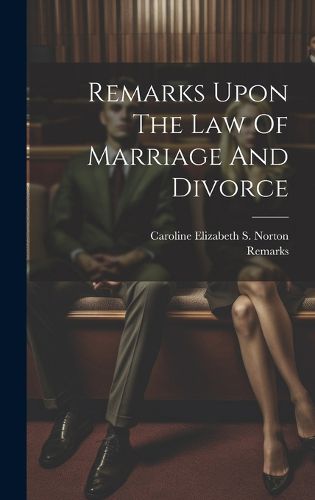Caroline Elizabeth S. Norton's 'Remarks upon the Law of Marriage and Divorce' is a groundbreaking work that paved the way for modern attitudes towards marriage and divorce. As a feminist pioneer, Norton argues that women should be allowed to divorce their husbands on the same grounds as men, and that the law should be reformed to reflect this equality. Through her thought-provoking arguments and powerful rhetoric, Norton challenged the status quo and left an indelible mark on legal history.
This work has been selected by scholars as being culturally important, and is part of the knowledge base of civilization as we know it.
This work is in the "public domain in the United States of America, and possibly other nations. Within the United States, you may freely copy and distribute this work, as no entity (individual or corporate) has a copyright on the body of the work.
Scholars believe, and we concur, that this work is important enough to be preserved, reproduced, and made generally available to the public. We appreciate your support of the preservation process, and thank you for being an important part of keeping this knowledge alive and relevant.





